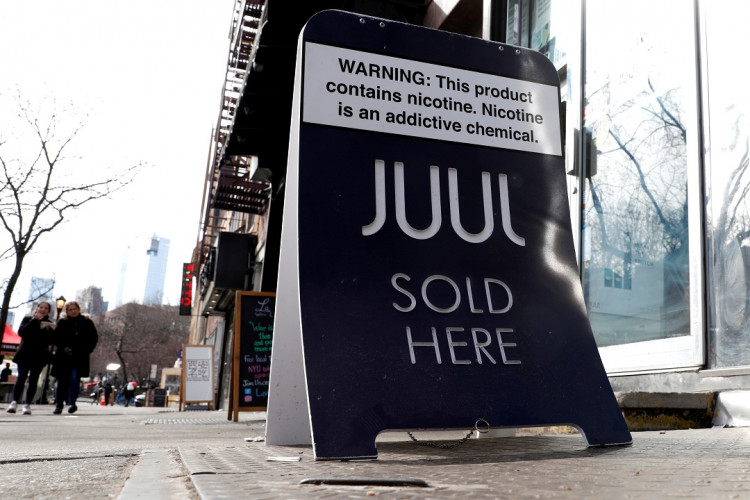Juul is planning to seek a stay of the U.S. Food and Drug Administration's order to block the sales of the company's e-cigarette products in the country. The FDA issued its decision on Thursday, which was a major blow to the company that once dominated the market.
The FDA ruled that Juul had failed to submit sufficient evidence to show that its product would improve public health. The decision was made following years of reviews on research and data submitted by the company.
The FDA had set a September 2020 deadline for Juul and other e-cigarette companies to submit applications to the FDA demonstrating that their products had a net positive impact on public health. Juul and the British American Tobacco's Vuse and Imperial Brands' Blu all submitted applications.
The health regulator had to determine if each product was successful in helping smokers stop and, if so, whether the advantages to smokers exceeded the risks to new e-cigarette users, particularly teenagers who had never smoked before.
Teenage usage of e-cigarettes soared with the growth in popularity of Juul in 2017 and 2018. According to a federal poll, its use among high school students increased to 27.5% in 2019 from just 11.7% in 2017. Due to incomplete and inconsistent data, the FDA expressed certain concerns, including whether potentially dangerous substances may leak out of Juul pods.
Juul disagreed with the FDA's findings, stating that it will explore all possible legal options. The company said it would appeal the decision and engage with the FDA and other regulators.
Since Wednesday, when the Wall Street Journal first reported the FDA was getting ready to yank Juul's e-cigarettes off the market, shares of tobacco giant Altria Group Inc., which owns a portion of Juul, had dropped roughly 7%. This wiped out around $6 billion of the company's market value.
Juul had applied for certification for both its vaping device and its tobacco and menthol-flavored pods, which contained 3% and 5% nicotine. Since the FDA's compliance deadlines for e-cigarette manufacturers were continually postponed, the companies have been selling their products in the U.S. without an official FDA license.
Public health organizations, who had long warned that e-cigarettes were hooking a new generation of teens on nicotine, praised the FDA's decision.
In an effort to reduce the number of avoidable cancer deaths, the Biden administration has been researching more methods to assist smokers in quitting. In order to make cigarettes and other finished tobacco products less addictive, it stated this week that it intended to propose a rule establishing a maximum nicotine content in all cigarettes sold in the country.






